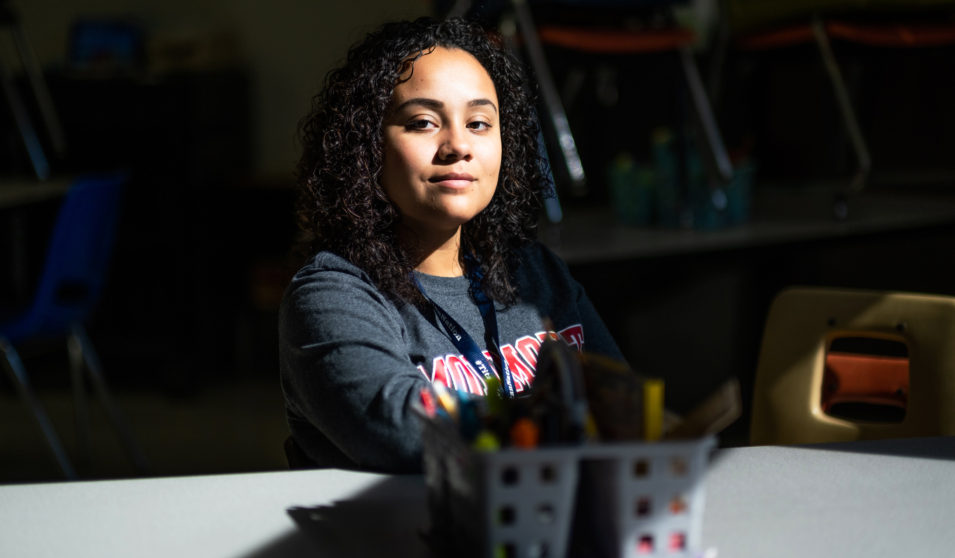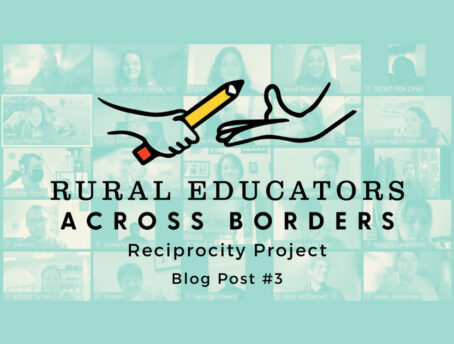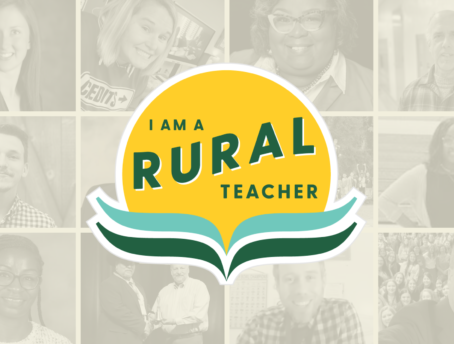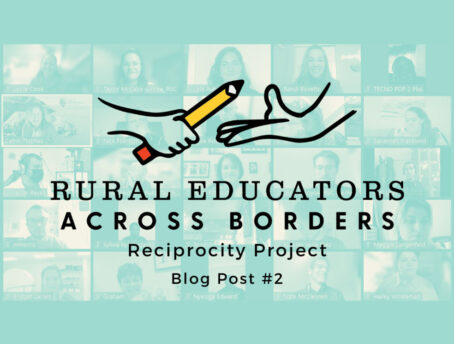“I Am a Rural Teacher” is a national advocacy campaign that gives voice to rural teachers. The program is a collaboration between the Rural Schools Collaborative, National Rural Education Association, Community Foundation of the Ozarks, Ozarks Teacher Corps, and The University of West Alabama’s Black Belt Teacher Corps. The “I Am a Rural Teacher” campaign is made possible by a grant from The Bill & Melinda Gates Foundation.
For Kylee Payne, the past 8 months have been filled with new experiences. She started her first year teaching, helped to implement a new curriculum, and now she’s finishing up the school year virtually.
“It’s definitely a day-to-day process,” says Kylee.
Throughout this monumental year, Kylee has learned the tremendous role that schools play in the small community of Monmouth, Illinois.
Surrounded by a vast expanse of midwestern cornfields, Monmouth hosts a small, but incredibly diverse population. At Central Intermediate, where Kylee teaches sixth grade, nineteen languages are spoken. Through the local meatpacking plant hundreds of families have immigrated to the town. Meanwhile, Monmouth College, the small liberal arts school where Kylee received her education degree, brings in young folks from around the region.
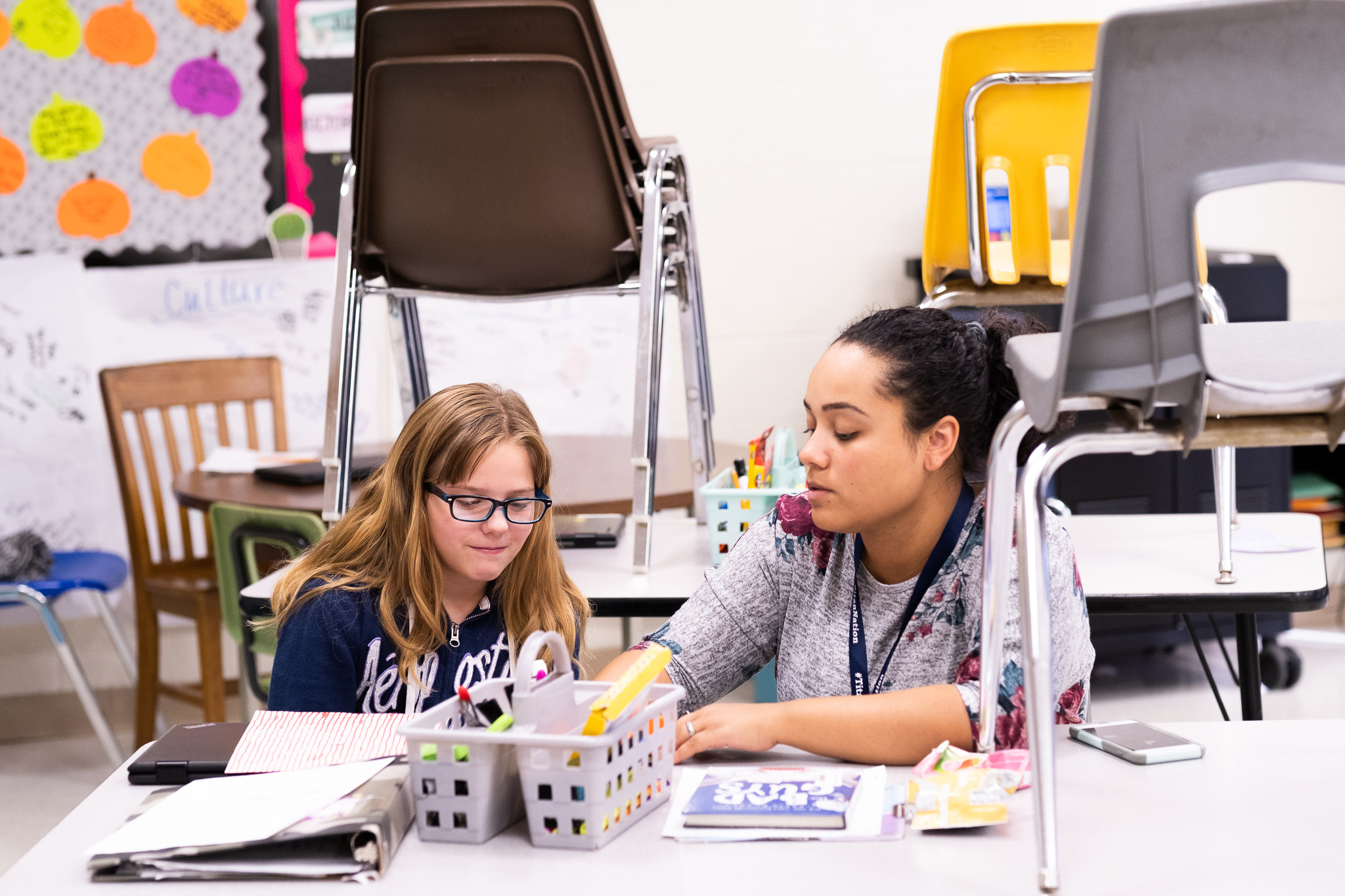
The challenges of the coronavirus have hit Monmouth hard. Warren County, where Monmouth is located, has one of the highest rates of Covid-19 in Illinois. The meatpacking plant has experienced a temporary shut-down and an employee strike.
Throughout this time, Kylee says, “the district is constantly coming up with ways to make sure that the community is in good spirits and good health.”
They’re providing free lunch, hosting car caravans to pass student homes, and checking in on families individually.
Kylee isn’t surprised at these efforts, as she says, “to be a rural teacher, you definitely need to... have a good sense of community.”
On top of Covid-19, the past year has been one of change for Central Intermediate. They are currently implementing a place-based education model through Teton Science School’s Place Network to replace the traditional science and history curriculums for their sixth grade class. The place-based education model utilizes the surrounding community as a primary resource in students’ learning.
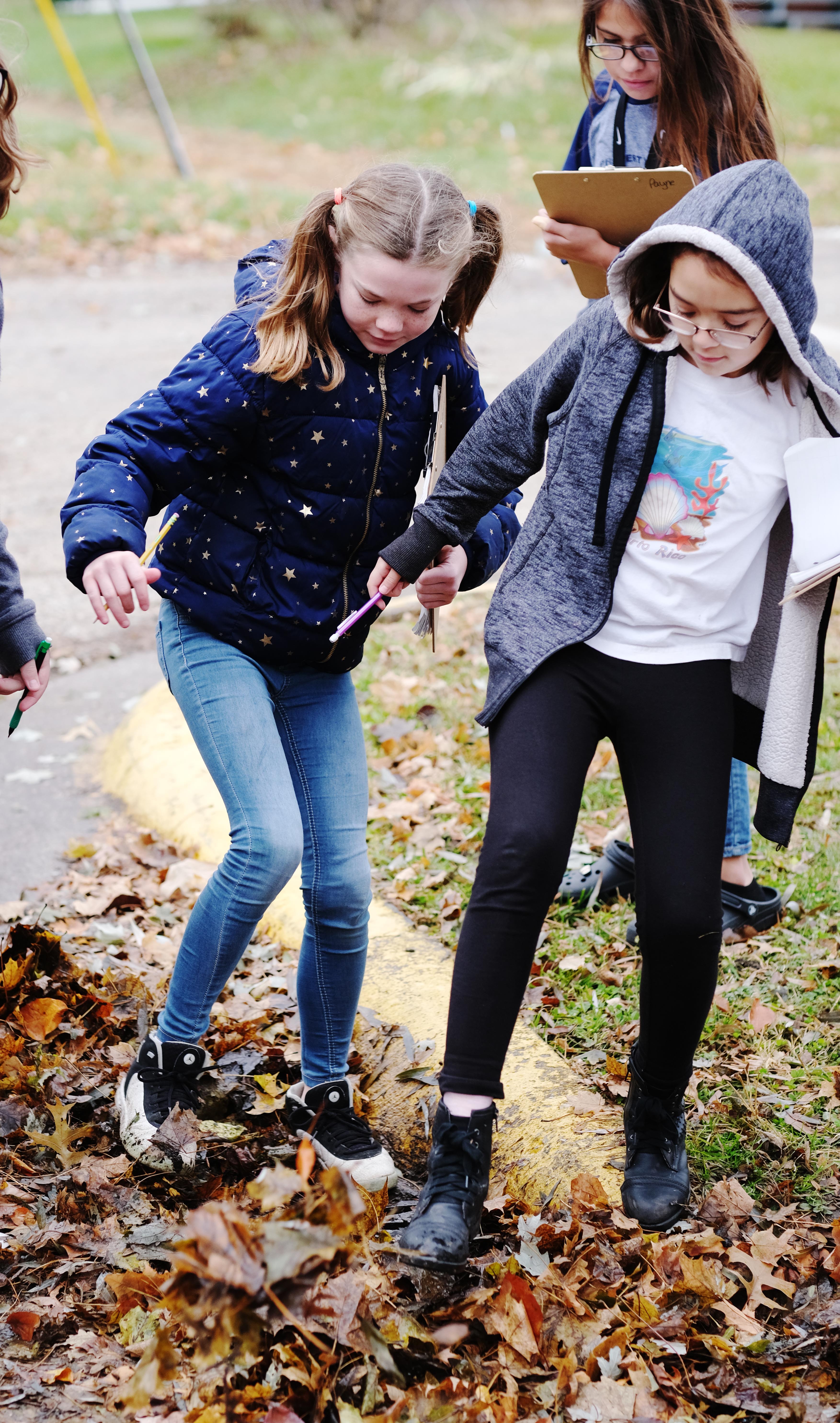
For the sixth graders at Central Intermediate, the place-based curriculum provided an opportunity to take control over their learning. During one quarter, when the students were focused on the water cycle, they noticed that whenever it rained the drains outside the school flooded. They then decided that they would study the drainage system in Monmouth and write a proposal for the city on why the school drains should be fixed.
Kylee has found a lot of inspiration from her students. She advocates that “we really need to listen to the kids, with what they notice. They have some wonderful ideas, and such open and creative minds.”
Implementing this new curriculum has not been easy. An entirely new program, the curriculum is being created and tweaked week-by-week. And since it’s only been implemented for the sixth grade, there’s a question of how this style of learning can continue into middle and high school.
But for Kylee, these challenges are worth the reward of a learner-centered curriculum.
“I’m preparing my kids for a future that they are in control of. A lot of times kids grow up and believe that they aren’t in control of their lives and they don’t have much say, but I want them to feel like they have control,” says Kylee.
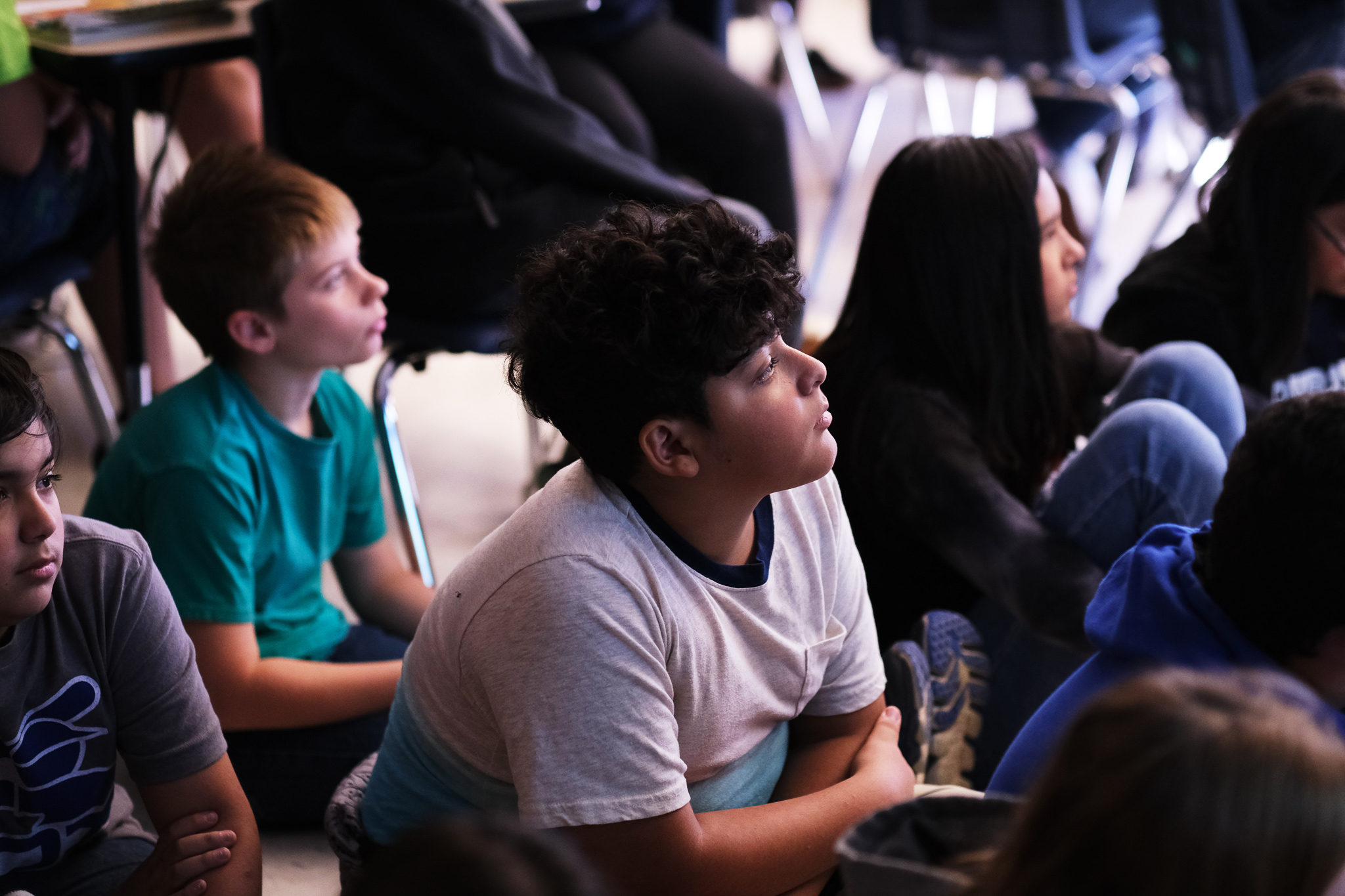
Throughout this challenging first year, Kylee has found support in her education community. In May 2019, she graduated from the Educational Studies Department at Monmouth College. While there, she participated in the TARTANS (Teachers Allied with Rural Towns and Neighborhood Schools) program. Through the program, she was able to connect with a broad community of teachers, all with the focus on rural education.
“I have had so many teachers and administrators help me through getting through my first year. Any questions I’ve had with this process, everybody has been so open to help me out.”
This sense of camaraderie is what makes teaching rurally so special.
Teaching in a small community has enabled Kylee to know her students' families in different contexts, providing a “different level” of personal connection with her students. Plus, the school itself plays a large role in pulling the Monmouth community together.
“There’s not too much in the community for kids to do, and even adults to do. But I would say that can become an opportunity for creativity. [In November] we had a Girls Night at the school. All the sixth grade girls got to come from 5-8 p.m., there was dinner, we did hair and makeup, tie-dye t-shirts, kindness crafts and all types of really fun stuff. Even with us not having as much in this community, people find fun ways to make up for that,” Kylee shares.
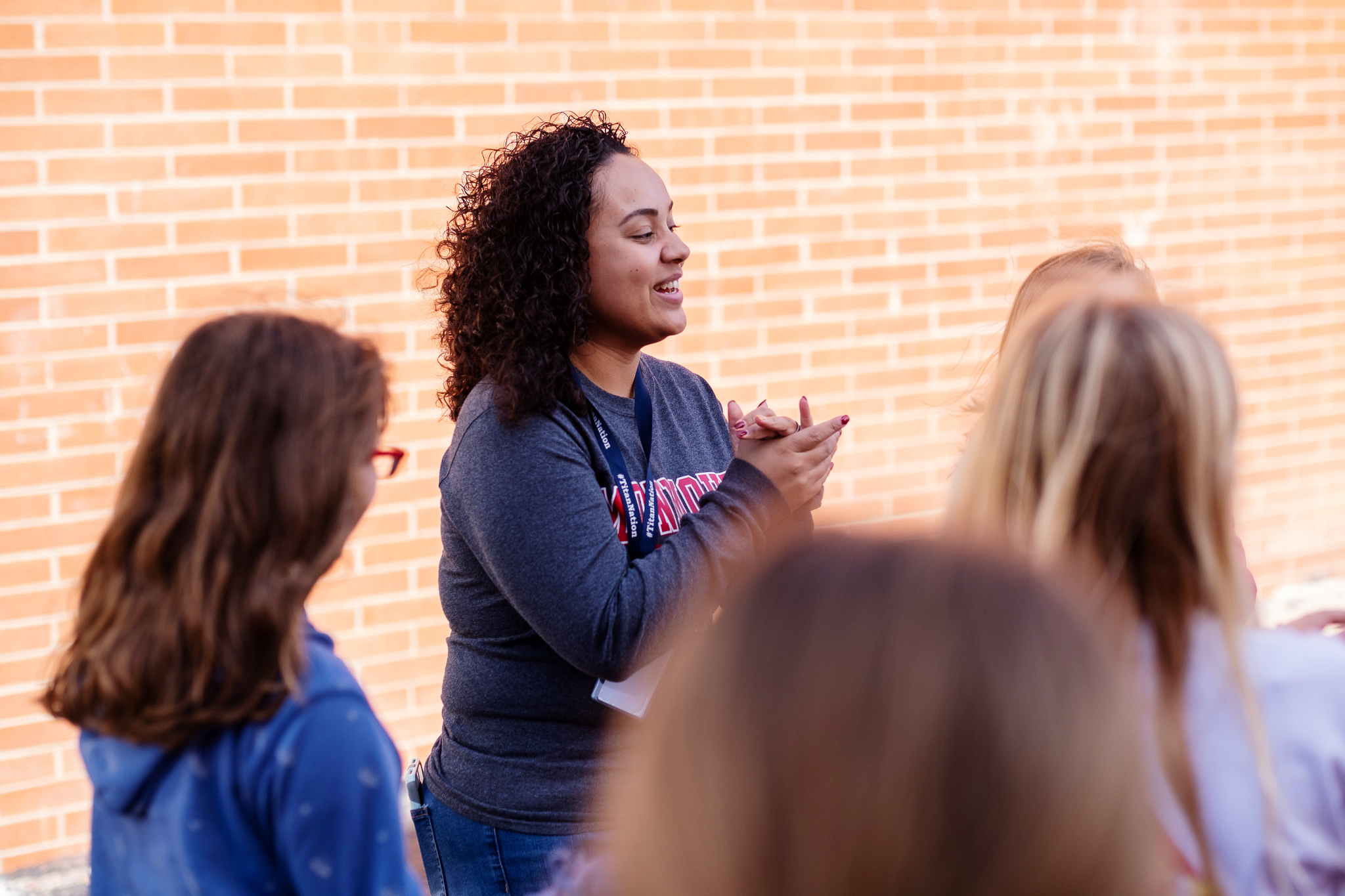
Kylee is always looking for ways to make a positive connection with her students. Before Covid-19, Kylee helped to run the yoga club on Wednesdays after school. Students pulled out mats in the darkened gym, and then followed the instructions from a yoga video on the projector. Some students follow along intently, others just lay there for a quiet moment.
For Kylee the yoga club is important because it shows kids “that there’s other ways to wind down from a crazy day. Some kids don’t know how to take their emotions and do something constructive with them, some kids will resort to fighting, some kids will resort to just totally shutting down. We opened up this club to show kids that mindfulness is extremely important. It’s a great way for me to wind down from the day too.”

It’s also a reminder to stay kind and compassionate, with yourself and your friends.
“I feel like a lot of things are portrayed for kids to act out, against adults or their peers or just be mean to each other, so I want to be that person in their life just to say, ‘Hey it’s ok to be a nice person, maybe others may think that you’re soft, but it’s okay to be that person because it means that you have a heart, it means you’re compassionate about other people.’”
She works hard to bring that positive message to every student she interacts with.
“I’m inspired to teach because there are kids out there that don’t have any type of positive role model in their life; I just really wanna be that person for them. I feel like I can teach the kids a lot, not only about their math but how to be a decent person.”
During the quarantine, it’s been hard to connect with students in the same way.
“Some kids may have some trust issues or some personal issues in their lives, so getting over that boundary, even just trying to connect with every kid. Some kids I connected with in like the first week, other kids I’m still trying to figure out how to have that connection with them.”
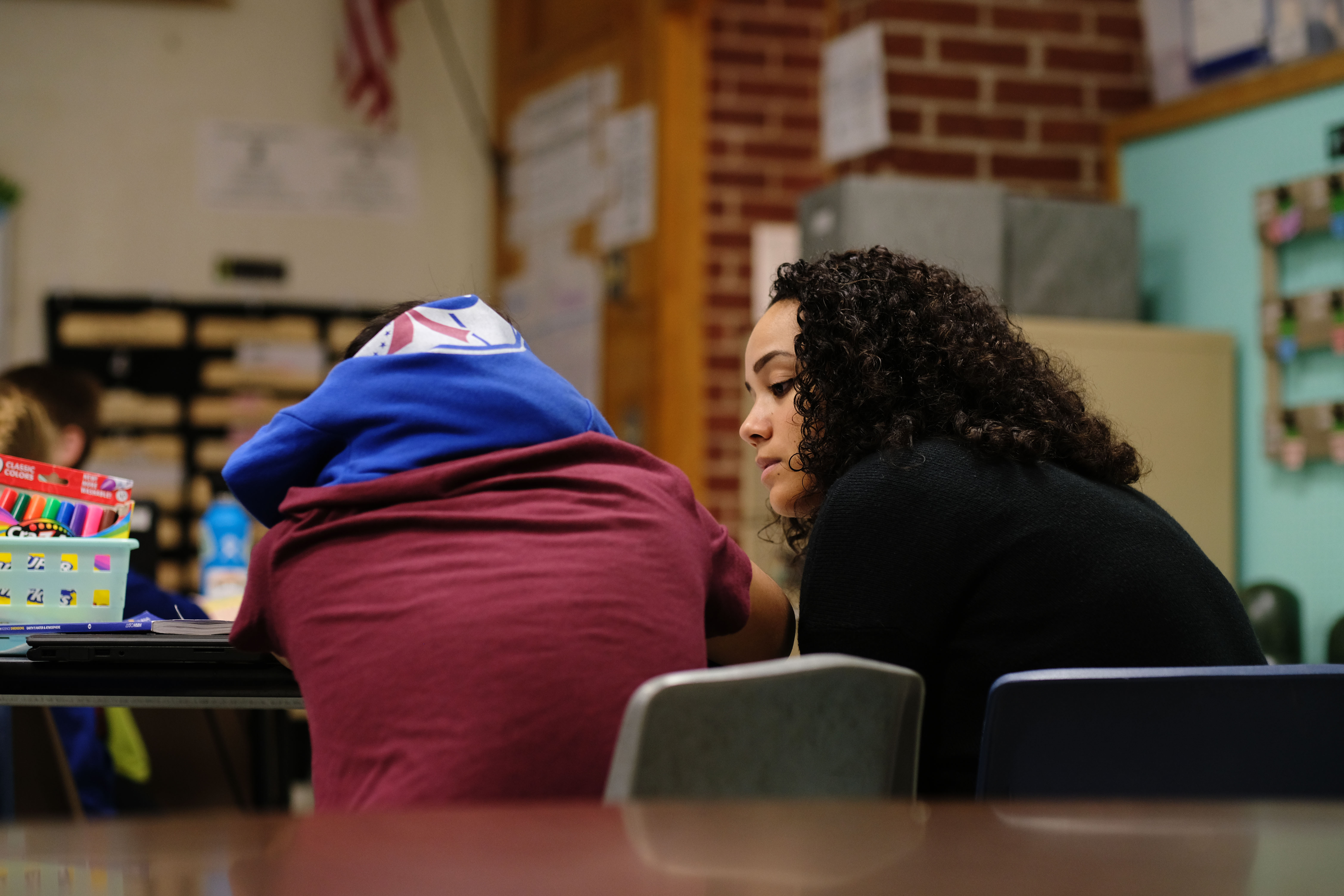
Though there have been many changes and challenges facing Kylee in her first year of teaching, she feels optimistic about her impact in the community.
“I would like my students to remember me as someone that they could look up to. Someone who they can talk to if they have any type of problem... It takes time, but I hope to be a positive person in every kid's life.”

Photos and story by Julia Levine.
To stay up to date with all of the “I Am a Rural Teacher” features, please sign up for email updates, and follow us @IAARTCampaign on Facebook, Twitter, and Instagram. In addition to our ten major features going out once a month, we will be featuring many shorter teacher perspectives. If you have a story to share, click here!

